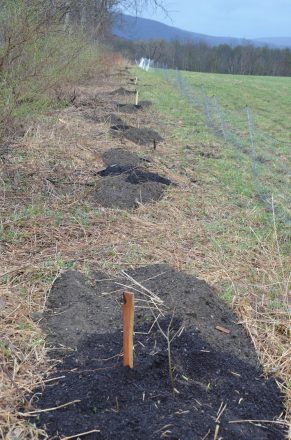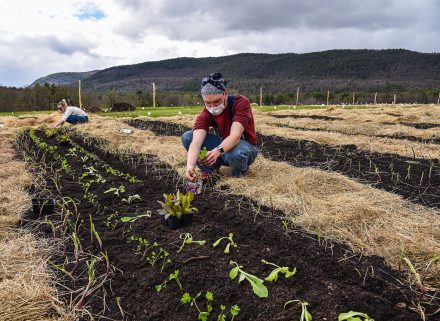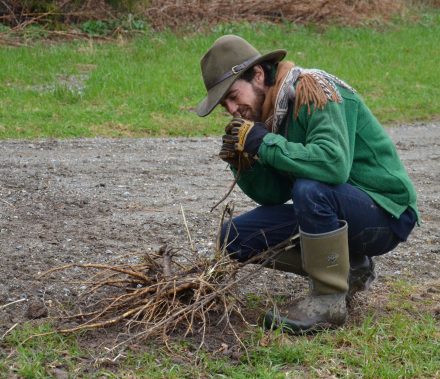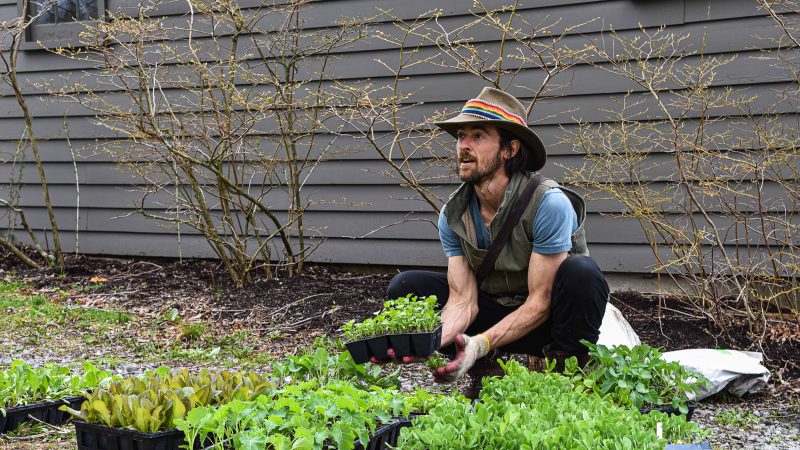Here’s a peek at the work going on:

A line of nut and fruit trees has been planted along either side of one of our hedgerows, soon to be the ‘Duck Food Forest’. Chestnut, Hazelnut, Hickories and Northern Pecans on the North, Mulberry trees on the south and elderberry, sea berries, black and red currants, comfrey and much more planted throughout, a delicious future food forest.
The .6-acre demo garden is planted and ready to grow. Locust posts were stripped and drilled into the ground for the fence. Our crew worked to clear tree limbs from above the beds, while compost covers the cardboard for planting of perennials: asparagus, horse radish, strawberries, and raspberries to start.

Working independently on a single mission, a day might look like this: Sarah rakes out the compost in the planting bed, Jessie saws off large limbs of a prolific crabapple tree to bring in more sunlight, while Eli plants the asparagus crowns. We have found a way to do this important work while keeping a safe distance during this difficult time. We hope you can also find creative ways of working and helping each other as we all keep a safe distance. As more of us are saying; “we are going to get through this…together!”

Our farm manager Justin Torrico stops to pick up some discarded roots, dug out of the compost pile…yellow dock (rumex crispus). “Full of magnesium and calcium’ he explains. “The roots of the dock plant penetrate deep into the subsoil, finding these minerals far below ground and making them available to nutrient deficient soils above. Mountain soils around the world are regularly low in these minerals. I dry it, and use it as a tea, which rejuvenates the muscles and joints and nourishes my bones. Keeps me deeply rooted so to speak.”
Farmer Justin sniffs the roots to identify the discarded weed as yellow dock. He then gathers up the beneficial plant for future consumption.
Clearing out the ‘dead wood’ is something that we often take for granted. Here’s a ‘behind the woodshed’ scene of tree removal to make way for the new edible food forest, being planted now.

